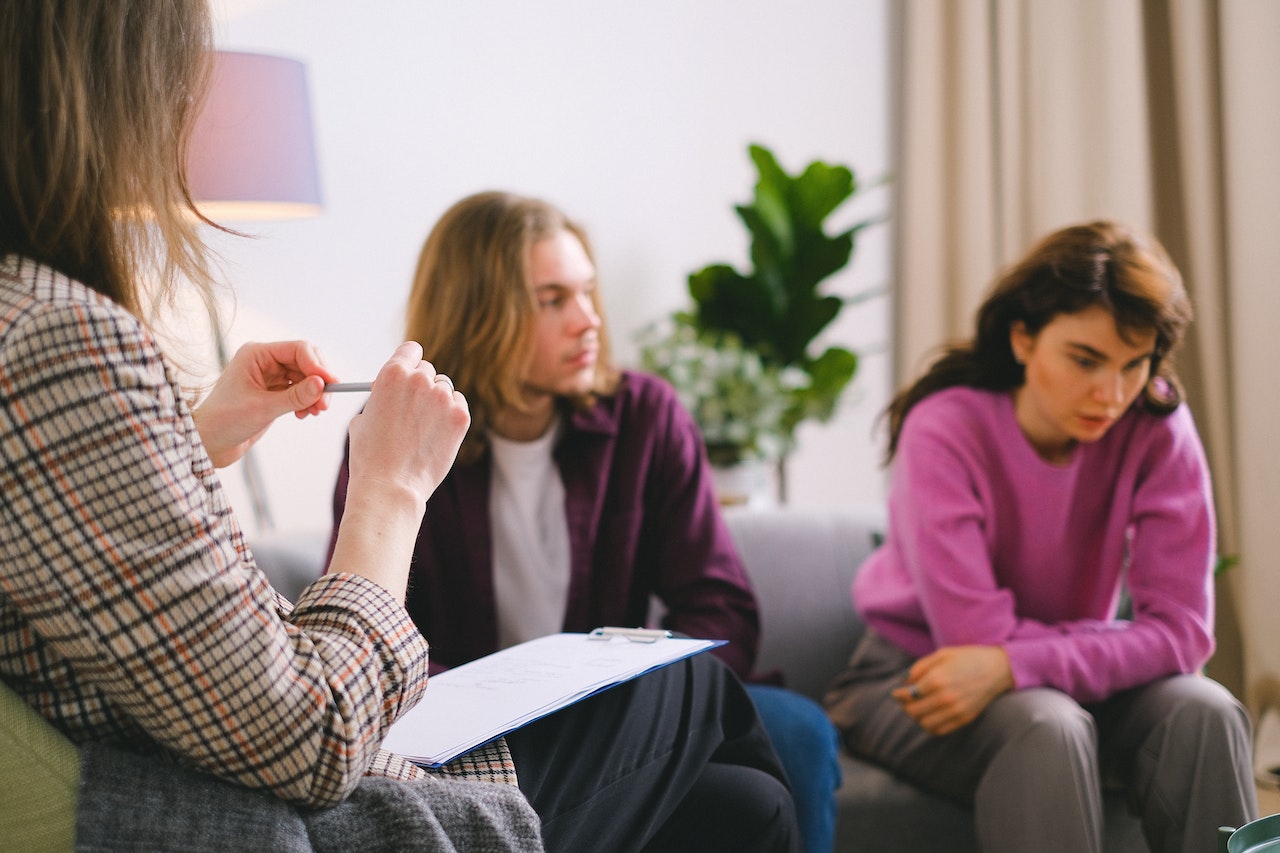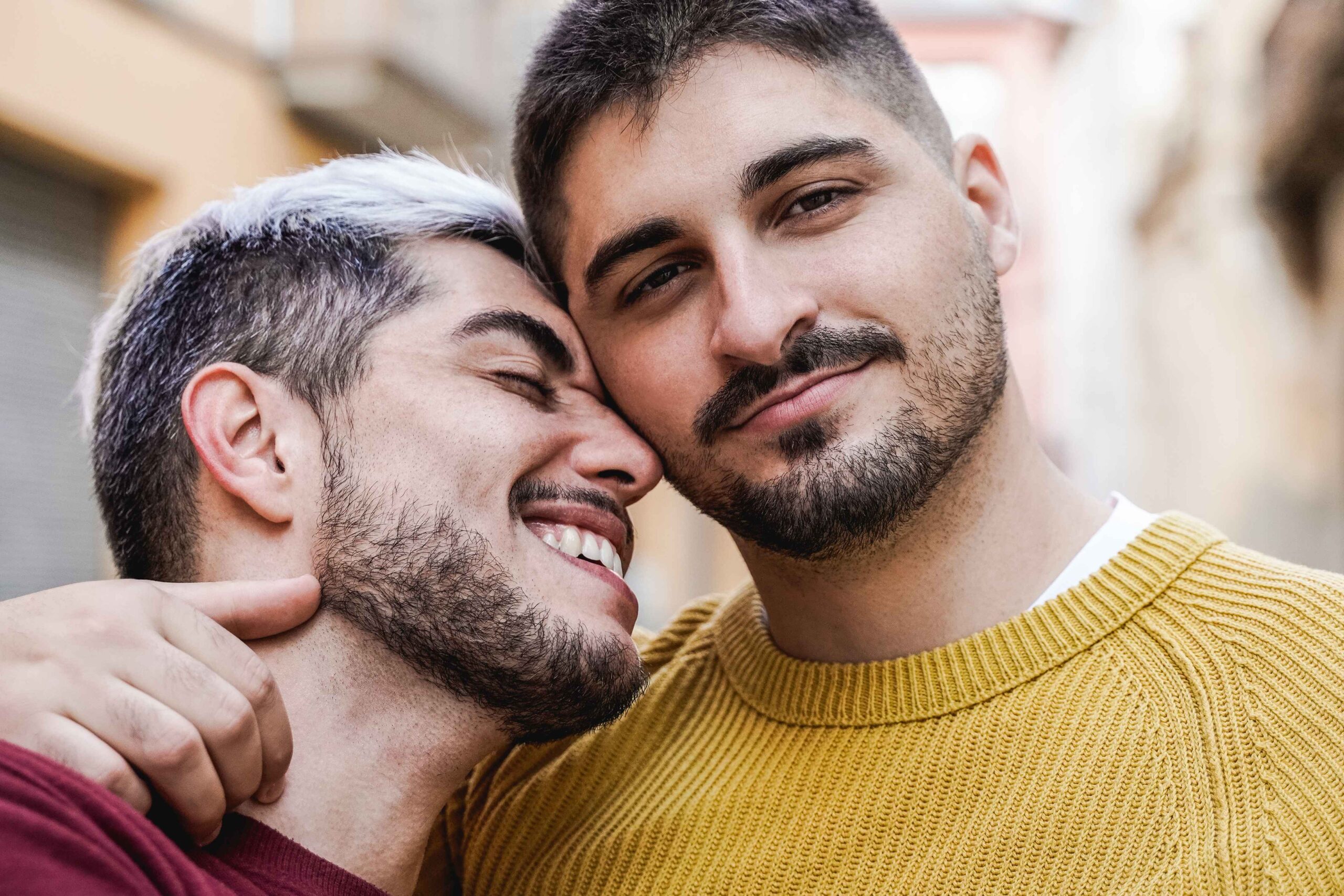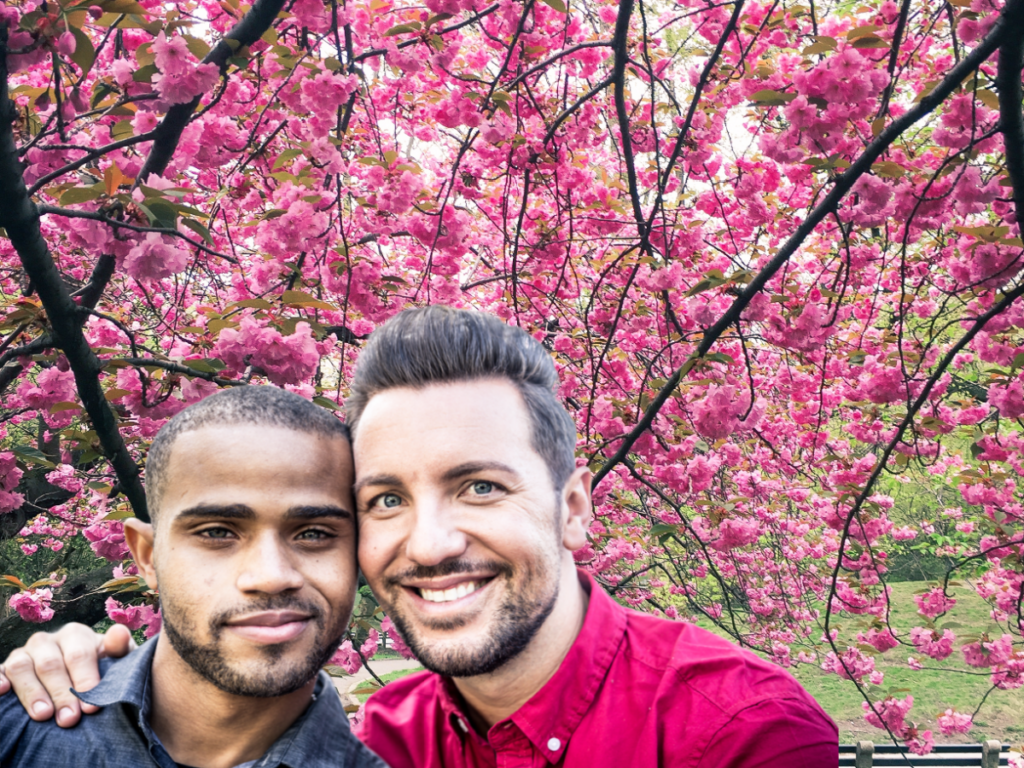Relationships, you know, they can be a beautiful dance, full of connection and joy. Yet, sometimes, even the strongest bonds face moments of strain or misunderstanding. For a gay couple on couples therapy, this shared journey into deeper connection holds a special significance, often bringing unique insights and growth. It's about finding ways to communicate more openly, to understand each other's world a little better, and to build an even more resilient partnership.
When we talk about sexual orientation, it really refers to an enduring pattern of emotional, romantic, and even physical attractions to men, women, or perhaps both sexes. For gay individuals, this identity is a central part of who they are, and it shapes their experiences in the world, including their relationships. Sadly, as we've seen with events like the tragic killing of Muhsin Hendricks, an openly gay imam and activist in South Africa, or the harsh laws passed in places like Hungary, prejudice can still cast a long shadow. This societal pressure, you know, it can really affect couples.
This article will explore why a gay couple might choose couples therapy, what unique aspects they might discuss, and how to find the right support. We'll look at how therapy helps address challenges that are sometimes specific to gay relationships, alongside the universal struggles all partnerships face. Basically, it's about giving your relationship the very best chance to flourish, offering a safe space to work through things, and really, to grow closer.
- Erica Wishard Funeral
- Petra Nemcova Net Worth
- Celebrity Upper Blepharoplasty Before And After
- Jake Rosenberg Photographer
- Letitia White
Table of Contents
- The Unique Journey of a Gay Couple in Therapy
- Why Couples Therapy Matters for Gay Relationships
- Common Themes Explored by Gay Couples
- Finding the Right Support: Selecting an Affirming Therapist
- Making the Most of Your Therapy Experience
- Frequently Asked Questions About Gay Couples Therapy
- Building a Stronger Future, Together
The Unique Journey of a Gay Couple in Therapy
For a gay couple on couples therapy, the path often involves more than just typical relationship issues. There's a broader context at play, you see. Sexual orientation, as a component of identity, includes emotional attraction and the social connections that come from it. This identity, while deeply personal, exists within a world that isn't always accepting. Human Rights Watch, for instance, works tirelessly for lesbian, gay, bisexual, and transgender peoples' rights, highlighting the ongoing fight for dignity and equal treatment globally.
Consider, for a moment, the external pressures that can weigh on a gay relationship. Things like societal bias, the sting of discrimination, or even subtle microaggressions can create stress that heterosexual couples might not experience. This external stress can, quite frankly, seep into the relationship, causing tension or making existing problems feel even bigger. It's a bit like trying to build a beautiful sandcastle while waves keep crashing closer, you know?
Historically, and even today in some places, gay and bisexual individuals have faced harmful ideas about their identity. The American Psychological Association (APA) has, for a long time, opposed any notion that lesbian, gay, and bisexual youths or adults are mentally unwell because of their sexual orientation. They've made it clear that appropriate support means affirming who someone is, not trying to change their core identity. This background is very important when considering therapy for gay couples, as it underscores the need for truly affirming care that understands and respects their lives.
- Taylor Swift Human Design
- Emma Corrica Heath Ledger
- Fixer Upper Houses For Sale Waco Tx
- Andrew Montemayor Jennifer Pan
- Angielly Dom%C3%ADnguez
Why Couples Therapy Matters for Gay Relationships
Engaging in couples therapy offers a safe, confidential space for a gay couple on couples therapy to address their concerns. It's a place where they can unpack challenges without judgment, which is really, really vital given the societal pressures many face. Studies have, sadly, found a higher rate of health and mental health problems among lesbian, gay, bisexual, and transgender teens compared to heterosexual youth, often pointing to social factors as the cause. These early experiences can carry into adult relationships, making a supportive therapeutic environment all the more important.
Therapy can help partners improve their communication patterns, moving from arguments that go nowhere to conversations that build understanding. It teaches skills for conflict resolution, so disagreements become opportunities for growth rather than sources of lasting hurt. For a gay couple, this might involve learning how to talk about the impact of external stressors on their bond, or how to support each other when facing prejudice. It's about, you know, creating a shared language for their unique experiences.
Beyond addressing problems, therapy also strengthens the inherent good within a relationship. It helps couples appreciate their strengths, celebrate their love, and deepen their intimacy. It can be a powerful tool for building resilience, allowing partners to face life's challenges as a united front. So, it's not just about fixing what's broken; it's also about nourishing what's already beautiful and making it even stronger, a bit like tending to a cherished garden.
Common Themes Explored by Gay Couples
When a gay couple is on couples therapy, they often explore themes that are both universal to all relationships and those that are quite specific to their experience. One common area is the impact of societal stress, or internalized homophobia, on their individual and shared well-being. This can manifest as anxiety, shame, or even difficulty with intimacy, and a good therapist can help partners identify and work through these deep-seated feelings.
Another significant topic is often family acceptance, or the lack thereof. While some gay individuals have wonderfully supportive biological families, others may have faced rejection, leading them to rely heavily on "chosen family" – close friends who offer unconditional love. Therapy can help couples navigate these complex family dynamics, whether it's setting boundaries with unsupportive relatives or integrating chosen family into their partnership. It's a very personal thing, you know, how family shapes us.
Intimacy, trust, and fidelity are, of course, central to any romantic partnership. For gay couples, discussions around these areas might also include unique considerations about open relationships, non-monogamy, or differing expectations around sexual expression within their community. A therapist can help facilitate honest conversations, ensuring both partners feel heard and understood as they define what fidelity and intimacy mean for them.
Many lesbian, gay, bisexual, and transgender families are raising children, and there's been a rapid expansion of studies looking at these family structures. Parenting, adoption, or family planning can be significant topics for a gay couple on couples therapy. They might discuss division of labor, differing parenting styles, or how to talk to their children about their family structure in a world that might not always understand. It's about building a stable and loving home, you see.
Finally, sexual health and identity can be important discussion points. Partners might explore how their individual sexual identities have evolved, how they communicate desires and boundaries, or how to navigate sexual health within their relationship. Therapy provides a safe space to discuss these very personal and often sensitive subjects, fostering greater closeness and understanding between partners.
Finding the Right Support: Selecting an Affirming Therapist
Finding the right therapist is, arguably, one of the most important steps for a gay couple on couples therapy. It's not just about finding someone qualified; it's about finding someone who truly understands and affirms the experiences of LGBTQ+ individuals. The APA has long stood against any portrayal of gay, lesbian, and bisexual adults as mentally unwell due to their sexual orientation, which means a good therapist will never try to "fix" someone's identity. They will, instead, help them thrive within it.
When looking for a therapist, consider their experience and training with LGBTQ+ clients. Do they list this as a specialty? Have they undergone specific training in queer-affirming therapy? You might also look for therapists who are part of LGBTQ+ professional organizations. This can indicate a deeper commitment to understanding the unique dynamics and challenges faced by gay couples.
Don't hesitate to ask questions during an initial consultation. You could ask how they approach issues specific to gay relationships, or how they ensure their practice is inclusive. It's about feeling comfortable and confident that your therapist respects your identity and understands your world. This initial conversation is, you know, a bit like a first date for your therapeutic journey.
Many organizations and resources exist to help you find affirming care. For example, professional associations often have directories of therapists who specialize in working with LGBTQ+ communities. This is very helpful for locating someone who can provide truly supportive and knowledgeable care. You can learn more about finding ethical mental health support from organizations like the American Psychological Association. Visit the APA website for resources.
Making the Most of Your Therapy Experience
Once a gay couple is on couples therapy, making the most of the experience really comes down to a few key things. First, commitment is very important. Therapy isn't a magic wand; it requires both partners to be willing to show up, do the work, and stay engaged, even when conversations get tough. It's a process, you know, and sometimes progress feels slow.
Openness is another crucial element. Be honest with your therapist and, more importantly, with each other. Share your thoughts, feelings, and concerns, even if they feel vulnerable. The more you put into it, the more you'll get out of it. It's about creating a space where you can truly be yourselves, faults and all.
Often, therapists will suggest "homework" – exercises or conversations to have between sessions. Doing these can significantly deepen the work you do in therapy. It helps integrate new communication patterns or insights into your daily life, making the changes stick. So, you know, it's not just an hour a week; it's a continuous effort.
Patience is also key. Relationships didn't develop their patterns overnight, and changing them takes time. Celebrate small victories, and remember that setbacks are a normal part of the process. It's about focusing on gradual improvement and, basically, trusting the journey.
Frequently Asked Questions About Gay Couples Therapy
Here are some common questions people ask about gay couples therapy:
Is couples therapy different for gay couples?
While the core principles of couples therapy – improving communication, resolving conflict, fostering intimacy – are universal, the experience can be different for a gay couple on couples therapy. A good therapist will acknowledge and understand the unique societal pressures, historical context, and identity-related issues that gay couples might face. They'll also be sensitive to the diverse experiences within the LGBTQ+ community itself. So, in a way, it's both similar and uniquely tailored.
What are common issues gay couples discuss in therapy?
Gay couples, like all couples, discuss common relationship issues such as communication breakdowns, trust issues, financial disagreements, or differing desires for the future. However, they also often address topics unique to their experience. These can include navigating family acceptance, dealing with internalized homophobia, managing societal discrimination, exploring non-traditional relationship structures, or discussing parenting and family building within an LGBTQ+ context.
How do I find an LGBTQ-affirming therapist?
Finding an LGBTQ-affirming therapist involves looking for professionals who explicitly state their experience and training in working with the queer community. You can search directories of LGBTQ+-focused mental health providers, ask for referrals from LGBTQ+ community centers or advocacy groups, or interview therapists to ask about their approach to queer issues. It's important to feel that your therapist truly understands and respects your identity and relationship. You can learn more about finding supportive resources on our site, and also link to this page here for more specific guidance.
Building a Stronger Future, Together
For a gay couple on couples therapy, the journey is about more than just solving problems; it's about building a foundation for a truly fulfilling and lasting partnership. It's about creating a relationship that can withstand external pressures and flourish from within, supported by clear communication and deep understanding. The work you do in therapy can, quite literally, transform your connection, making it more resilient and joyful.
Embracing couples therapy is a proactive step, a powerful statement of commitment to each other and to the health of your shared life. It shows a willingness to grow, to learn, and to invest in the most important relationship you have. So, if you're considering it, know that you're choosing a path towards greater connection and a brighter future, together. Learn more about relationship support on our site.
Related Resources:



Detail Author:
- Name : Leilani Ankunding
- Username : ansel76
- Email : corwin.gloria@yahoo.com
- Birthdate : 1993-09-18
- Address : 80304 Smitham Villages Apt. 395 Port Alecville, LA 35124-0860
- Phone : 906.367.1403
- Company : Funk Ltd
- Job : Physical Scientist
- Bio : Vitae aliquam odio temporibus similique id quis. Nisi est sit earum. Non similique magnam est vel. Dignissimos quia sapiente ratione recusandae deleniti impedit.
Socials
linkedin:
- url : https://linkedin.com/in/ngerlach
- username : ngerlach
- bio : Omnis hic illo harum voluptas.
- followers : 675
- following : 1191
twitter:
- url : https://twitter.com/nella.gerlach
- username : nella.gerlach
- bio : Rerum deleniti aut in sed. Optio non necessitatibus non aspernatur.
- followers : 5077
- following : 2890
facebook:
- url : https://facebook.com/nella.gerlach
- username : nella.gerlach
- bio : Et deserunt sit dolor. Aut hic ullam ut atque.
- followers : 4643
- following : 1516
instagram:
- url : https://instagram.com/nella9135
- username : nella9135
- bio : Et illo neque non molestias. Nam ullam dolorem laborum unde ab voluptates. Facere dolores est odio.
- followers : 3241
- following : 1587